You might want to think twice before pouring yourself a glass of certain beverages over the festive season
If you’re hoping to avoid the dreaded ‘hangxiety’ over the festive period, you might have to avoid drinking a popular Christmas tipple.
Being consumed by a feeling of uneasiness while intermittently running to the bathroom to throw up just isn’t very merry at all, is it?
So even though it might pain you, it might be best to swerve certain alcoholic beverages over the next few weeks so that you don’t miss out on any holiday fun.
First things first, for those who have never been struck down by a crippling bout of hangxiety, let us fill you in on what it is.
It doesn’t take a genius to work out that it’s a combination of the words ‘hangover‘ and ‘anxiety‘, which when put together, make quite the formidable duo.
People often spend the day after a big night out feeling worried, on edge, irritable and unable to relax – while also dealing with the physical side effects of boozing.
You might have a banging headache, feel nauseous, or find yourself sweating and shaking as your body tries to expel all of the loopy juice you drank the night before.
Now just imagine going through this hellish ordeal while your nearest and dearest are calling round to drop off presents – or god forbid, if it happened on the Big Day itself.

Unless you want to end up like this over Christmas, choose your booze wisely (Getty Stock Image)
According to this expert, drinking certain types of alcohol puts you at a higher risk of being plagued by hangxiety the following day.
Although all booze is going to do its fair share of damage, Lisa Gunn says that drinking one specific beverage is simply asking for trouble over the festive season.
To start off, the Mental Health Prevention Lead, who works for Nuffield Health, explained how hangxiety works.
“Alcohol is a depressant that can initially produce a calming effect,” she told HuffPost UK.
“When this wears off, we typically see a rebound effect where anxiety levels spike.
“This is partly because alcohol disrupts the balance of neurotransmitters and chemical messengers in the brain.”
This disruption affects the GABA chemical in your brain – which relaxes you – and decreases it, so you will feel more excited and anxious.
So, now all the science stuff is out of the way, what drinks put you in danger of being doomed to a day of hangxiety?
Gunn explained that although ‘different drinks react differently in different people’, there are a few tipples which are known troublemakers.
But it seems that for the most part, the higher the alcohol percentage of the booze you are supping, the worse you will feel the next day.

You might want to take it easy on the red wine if you want to avoid the dreaded hangxiety (Getty Stock Image)
Drinking spirits can spike your blood alcohol level, Gunn said, which ‘can lead to more pronounced rebound anxiety’ the next morning.
But it’s the red wine you really need to watch out for over Christmas.
It’s an alcoholic beverage which we often gift to our family and friends over the holidays, while also being very hard to resist when a bottle of it is popped open at a soirée.
Some people reckon a full-bodied bottle of plonk is the perfect thing to wash down a turkey dinner with too, so it’s always flying about in December.
But because red wine contains tyramine and histamines – which are biogenic amines that are commonly found in foods – it can often leave boozers feeling very rough.
Gunn said that these components ‘make red wine more likely to trigger anxiety in susceptible people’.
She also warned people to be wary of how many cocktails they sip, as the sugary drinks often cause your blood alcohol and blood sugar to rise and fall throughout the night.
However, you will be glad to hear there are some drinks which don’t come with a hangxiety disclaimer, though.
Brits can happily chug down beer and lager, as their low alcohol content means you can guzzle them over a longer period of time.
Gunn says this can ‘help with rebound anxiety’, as you aren’t experiencing as many highs and lows, like you do with other tipples.
But at the end of the day, the mental health expert says it all still comes down to ‘how much we consume’.
So eat, drink and be merry – just dodge spirits and red wine like the plague if you want to have an hangxiety-free holiday.Featured Image Credit: Getty Stock Images
Topics: Christmas, Food And Drink, Health, Mental Health, Alcohol

Olivia Burke
Advert
Advert
Advert

Published 10:52 31 Oct 2024 GMT
Experts warn that lunchtime favourite food is ‘colossal’ risk to health and could leave you seriously ill
The budget-friendly and highly convenient food choice is a major risk to your health, new research has suggested

Convenience tends to be a high priority for many of us after the long commute back home from work.
By the time you get home, often the last thing you want to do is spend an hour or two whipping up a meal. You want something quick and easy that lets you enjoy the night off before you’ve got to do it all again.
However, it seems that a common, budget-friendly choice could be ‘a colossal risk to public health‘.

Most of us have it knocking around in the cupboards (Getty Stock Images)
We’ve been having tinned food for years, but a new study has suggested that it could be doing more harm than good.
150 tins of tuna were purchased across the UK, France, Italy, Spain, and Germany, with tests showing that all of them ‘were contaminated with mercury’.
Exposure to mercury could cause health problems, such as nervous system effects like vision, hearing, and speech disturbances.
More seriously, the metal has been linked with life-threatening lung damage and even some cancers.
The US Environmental Protection Agency said: “In very high doses, some forms of mercury have caused increases in several types of tumours in rats and mice.”
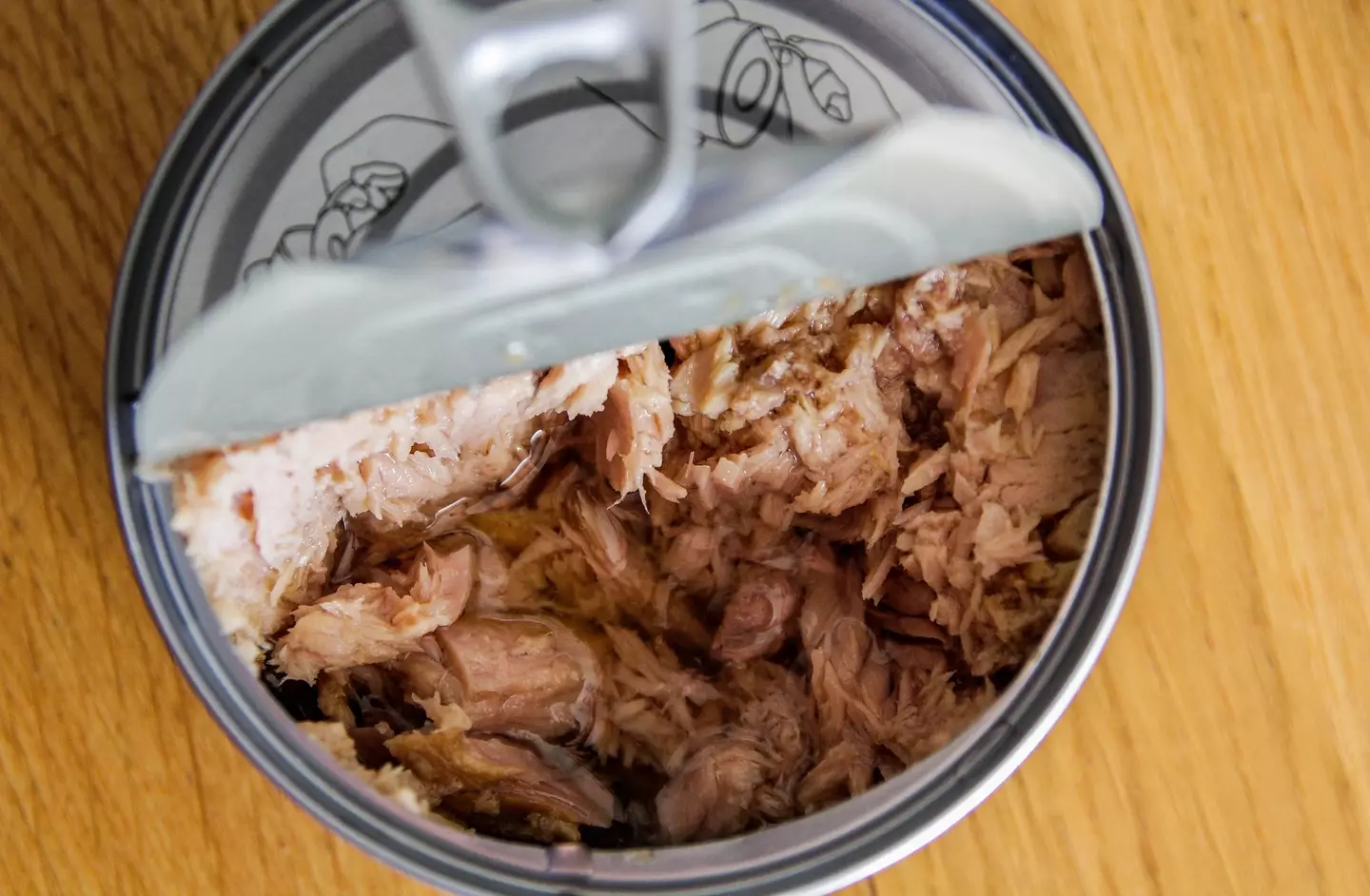
Tinned tuna is packed with protein and convenience, but it might also lead to serious health issues (Getty Stock Images)
Though they note that ‘no human data currently tie mercury exposure to cancer, but the data available are limited’.
Karine Jacquemart, CEO of consumer rights organisation Foodwatch France – one of the two groups behind the study – said: “What we end up with on our dinner plates is a colossal risk to public health that’s not considered seriously.
“We won’t give up until we have a more protective European standard.”
The Bloom group, which campaigns for protection of the oceans, also added: “That is the reason why tuna, among the most contaminated species, is given maximum tolerance in mercury three times higher than less contaminated species.
“Mercury is not less toxic if it’s ingested through tuna, only the concentration of mercury counts.
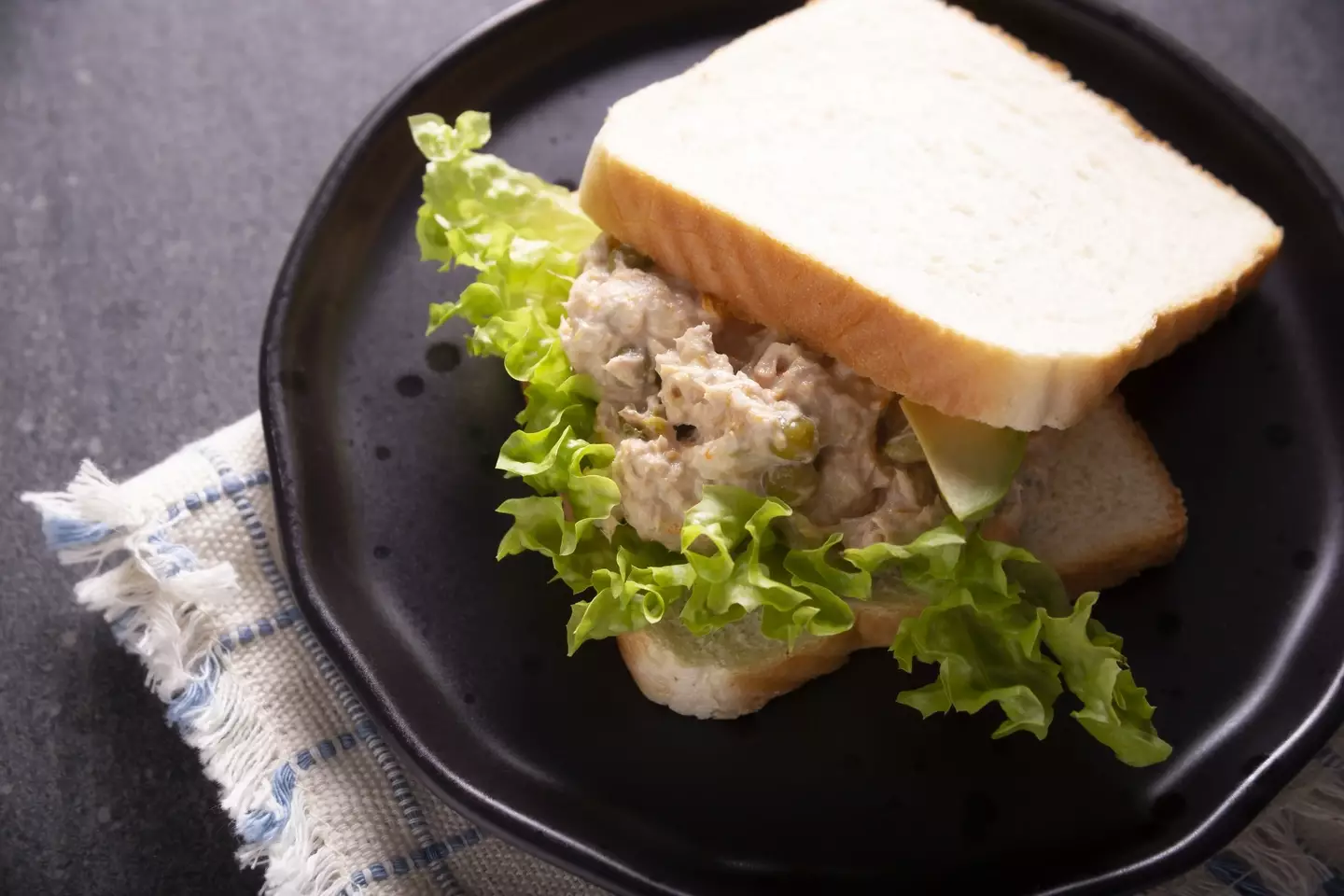
We’ve all seen tuna sandwiches going in the meal deal section (Getty Stock Images)
“We demand that the public authorities strengthen regulation and, without delay, that distributors do not sell products over the most protective level.”
They noted that in more than half of the tins, the mercury level was higher than the 0.3 milligrams per kilogramme maximum limit for mercury in other fish.
Bloom claim that the accepted mercury level of one milligram per kilo is there to make sure that ’95 percent’ of tuna caught is sold.
Mercury exposure can also come from breathing in mercury vapour and skin contact, causing skin itching and redness.Featured Image Credit: Getty Stock Images
Topics: Food And Drink, UK News, Health, Science, Environment

Anish Vij
Advert
Advert
Advert
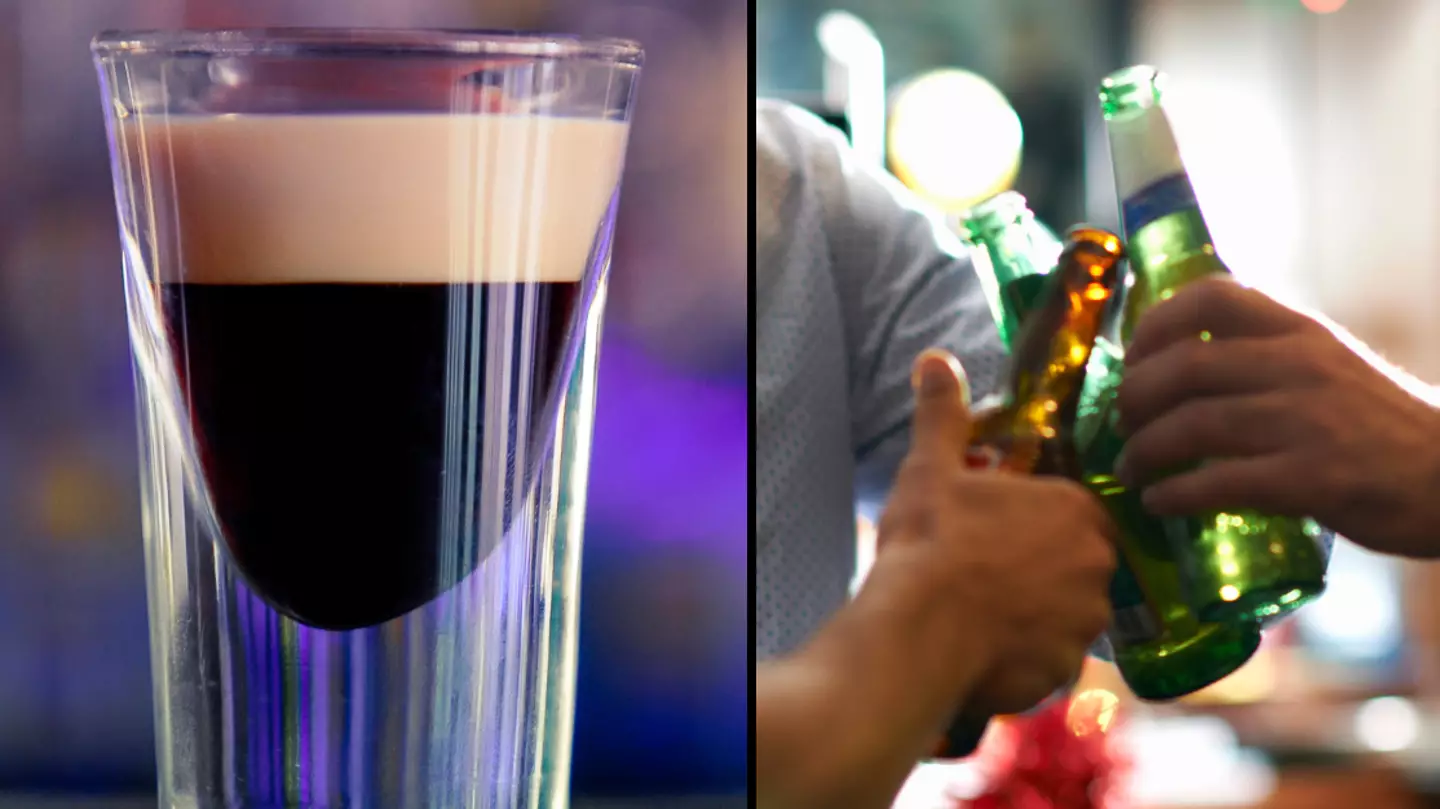
Published 12:39 23 Dec 2024 GMT
Baby Guinness warning issued to millions of Brits this Christmas
A popular little tipple this time of year – but millions need to realise what they’re drinking

It’s one of the most popular alcoholic drinks in the United Kingdom, with countless more set to be drank as Christmas finally arrives.
But it comes with a significant warning to millions of Brits who are partial to the odd micro glass of the black stuff.
Unless you have been living under a rock, no, Baby Guinness is not the same as the product made by Arthur Guinness way back in 1759.
It’s actually something you can easily make at home, unlike a creamy pint of the original drink it’s named after.
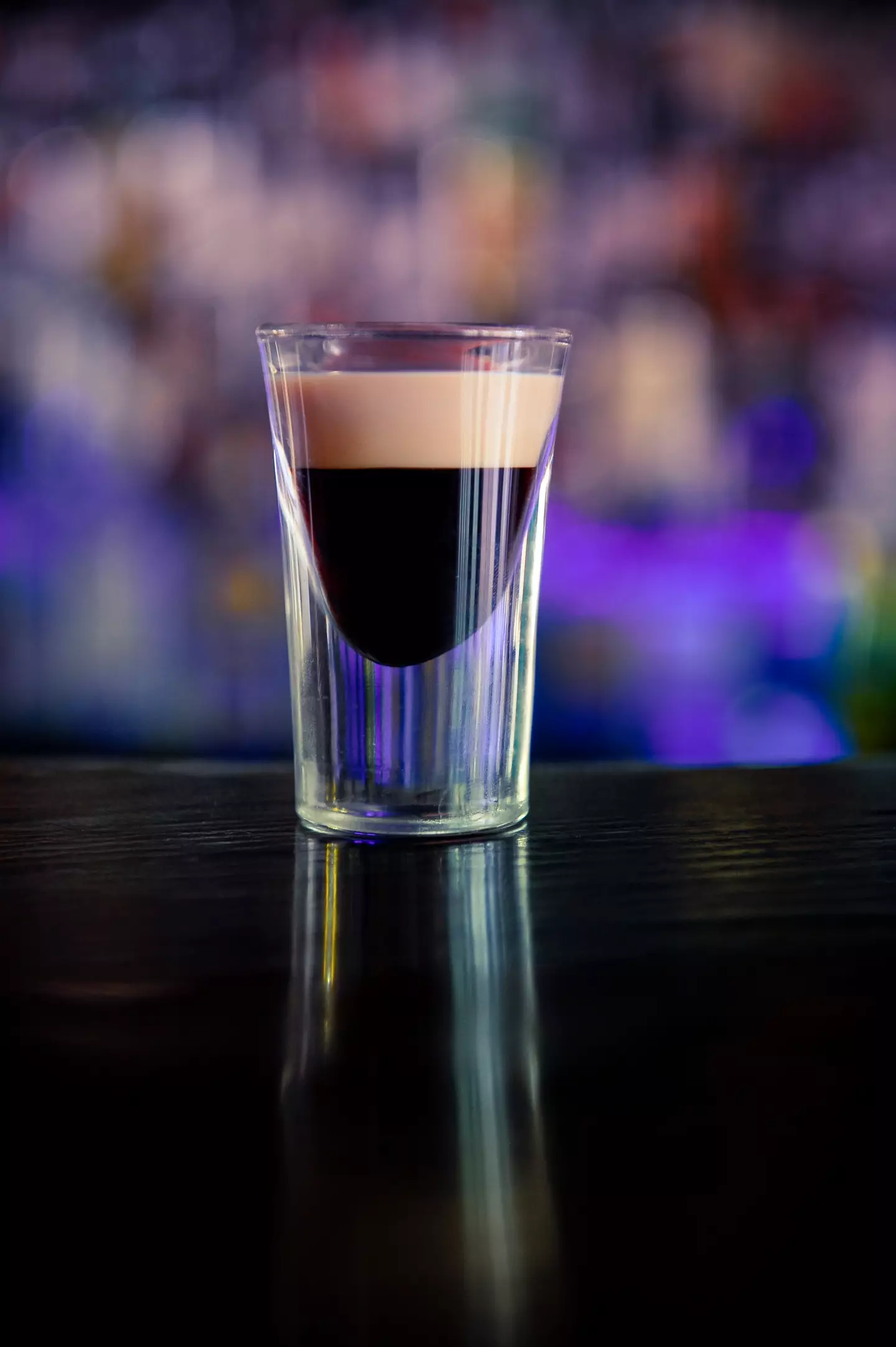
Millions cannot drink it if it’s made with a particular coffee liqueur (Getty Stock Images)
Created in a shot glass, it it made up primarily of coffee liqueur before being topped with Irish cream. And voila, you’ve got something looking a lot like a tiny glass of Guinness (if you can pour it correctly, anyway).
It’s incredibly fun and is god damn delicious, so it is no surprise it’s loved by millions across the country.
But for those saying slainte before knocking one back, better check what coffee liqueur is being used.
That’s only if you’re a vegetarian or vegan; of which there are around 5.6 million.
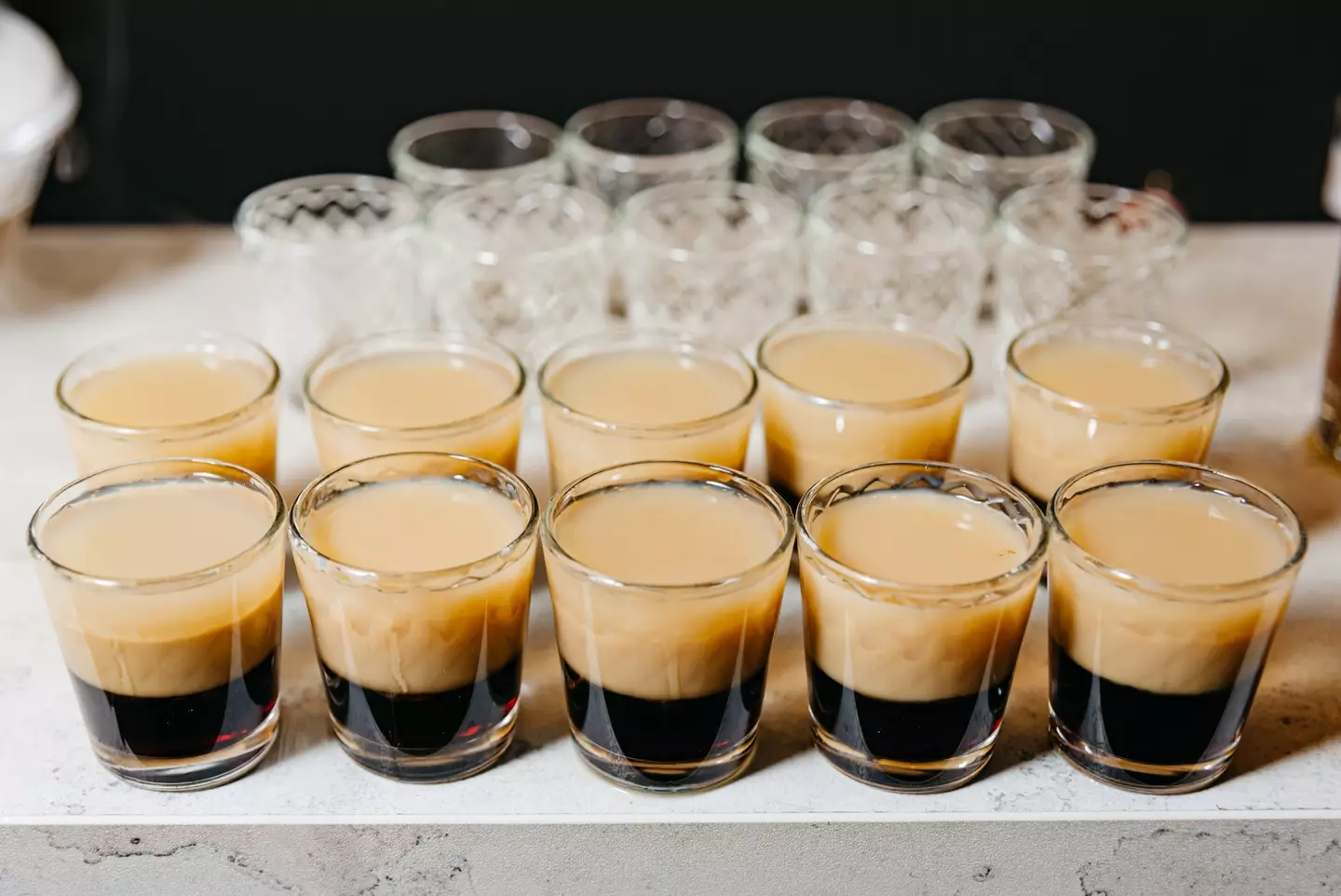
So many of them (Getty Stock Images)
Unfortunately for those who follow either of these lifestyles, one of the major coffee liqueur brands in the UK does not fit into said lifestyle.
You’re all good if you’re on the Tia Maria, which uses coffee beans, cane spirit, vanilla, and sugar alongside a ‘vegan-certified’ supply and manufacturing process.
Sorry if you’ve been having Kahlua, though; it doesn’t not hold either vegan or vegetarian status.
It’s not to do with the ingredients. Rather, the creation process.
“We can clarify that Kahlúa is not directly manufactured with any animal derivatives,” a spokesperson from Kahlúa’s parent company Pernod Ricard said this year.
“However, it’s important to note that a bone char filtration process, which does involve contact with animal derivatives, is employed by one of our sugar suppliers during refinement.
“This widely accepted practice in the sugar industry currently prevents us from categorising Kahlúa as suitable for vegetarian and vegan diets.”
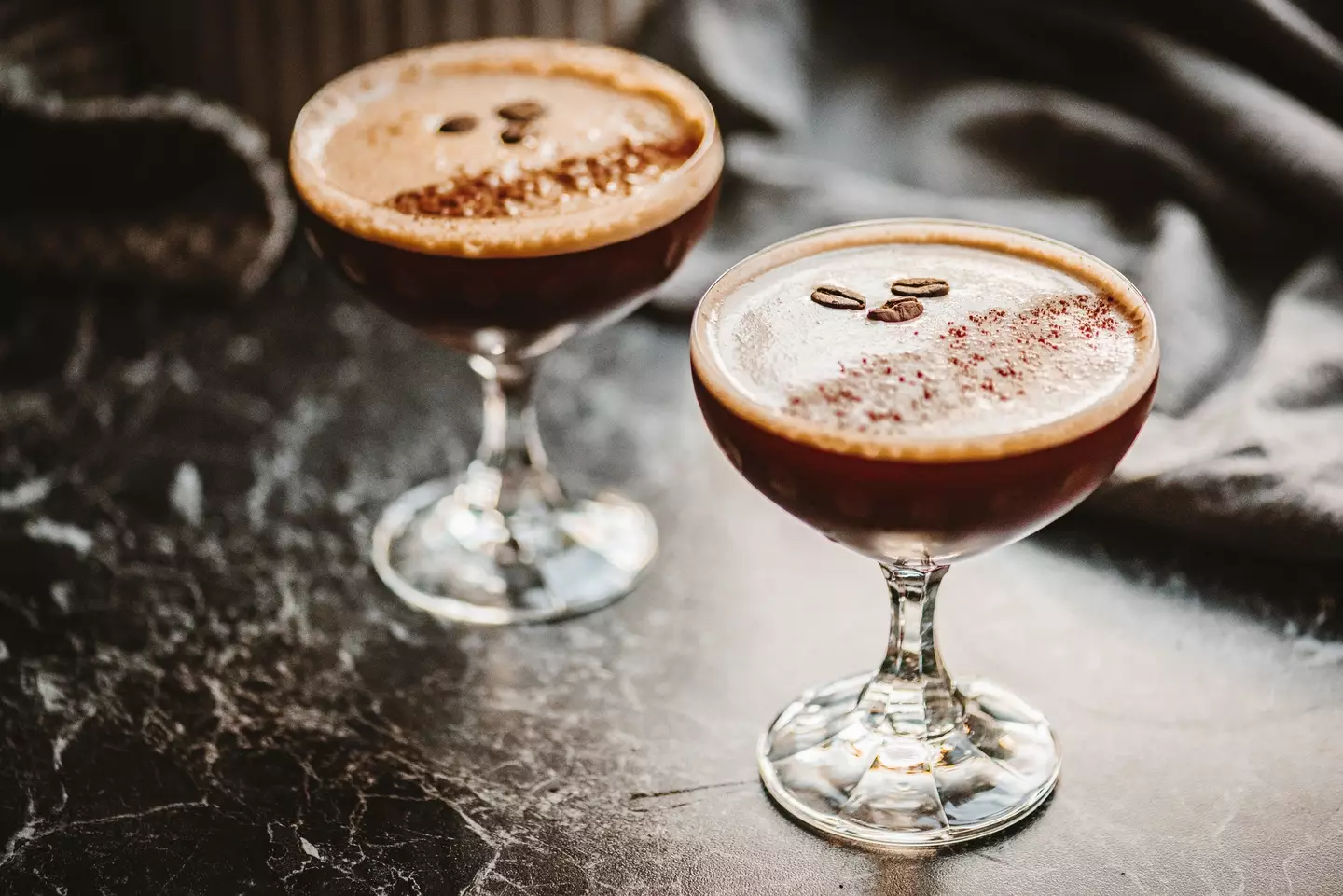
It’s also used to make espresso martinis (Getty Stock Images)
Kahlúa has in fact not been vegan since 2016; although it’s clear not everyone was aware going by reaction on social media.
In an additional statement from earlier this year, Kahlúa explained: “We can confirm that Kahlúa is NOT suitable for vegetarians or vegans. This is because of the sugar refinement.
“It appears there was some confusion as, prior to 2016, Kahlúa was deemed suitable. At this time, Kahlúa is not suitable for vegetarians or vegans.”
Kahlúa is also used by some in espresso martinis, so you better check next time you order one.Featured Image Credit: Getty Stock Images
Topics: Food And Drink, Alcohol, Christmas, Vegan, Vegetarian, Health, Lifestyle

Tom Earnshaw
Advert
Advert
Advert

Updated 12:40 23 Dec 2024 GMTPublished 12:32 23 Dec 2024 GMT
People warned about grim reason you shouldn’t cook pigs in blankets in air fryer this Christmas
More than half of UK households now own an air fryer

What do all air fryer owners have in common?
They won’t stop talking about their air fryers.
With more than half of UK households now having one, ownership has increased by a whopping 70 percent from 2022, reports leatherhead food research.
Christmas gift card warning
Credit: ITV
0 seconds of 1 minute, 29 secondsVolume 90%
And there’s no doubt that users will definitely be taking advantage of theirs this Christmas. From air fryer roast potatoes to crispy brussel sprouts, there’s all sorts of Xmas classics you can try. You can even do an air fryer turkey breast by wacking it in for 25-30 minutes, flipping it halfway.
But according to the BBC’s Good Food section, there’s one food you should avoid air frying – pigs in blankets.
Those savoury little sausages wrapped in crispy bacon perfectly compliments your roast dinner, and Yorkshire puds (controversial, but essential).
However, putting bacon in an air fryer can be a big issue.
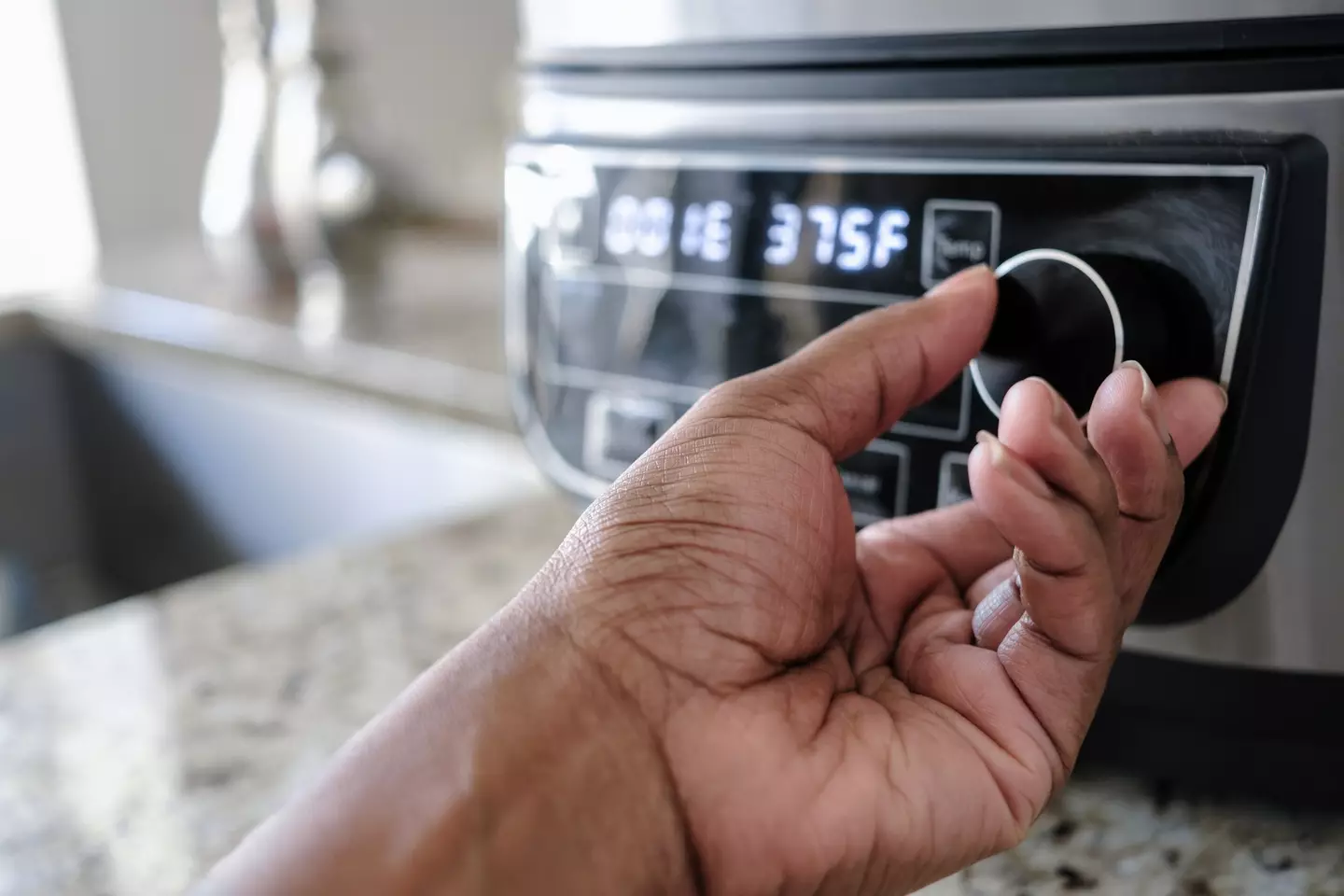
More than half of UK households now own an air fryer (Getty Stock Images)
As dietitian Brenda Peralta explains, the fat content in bacon – though being the reason it tastes so good – can actually be a bit of a disaster for air fryer cooks.
“It is a fatty food, and when it is cooked in an air fryer, the fat can drip down and cause smoke or splatter,” she told the Huffington Post.
“This can make the bacon difficult to cook evenly, and it can also produce a lot of smoke and odours.”
The uneven distribution of fat content in the bacon can make it difficult to cook the meat evenly. By putting pigs in blankets in the air fryer, you’re at risk of not cooking it all the way through.
No one wants food poisoning from uncooked meat, especially at Christmas time.
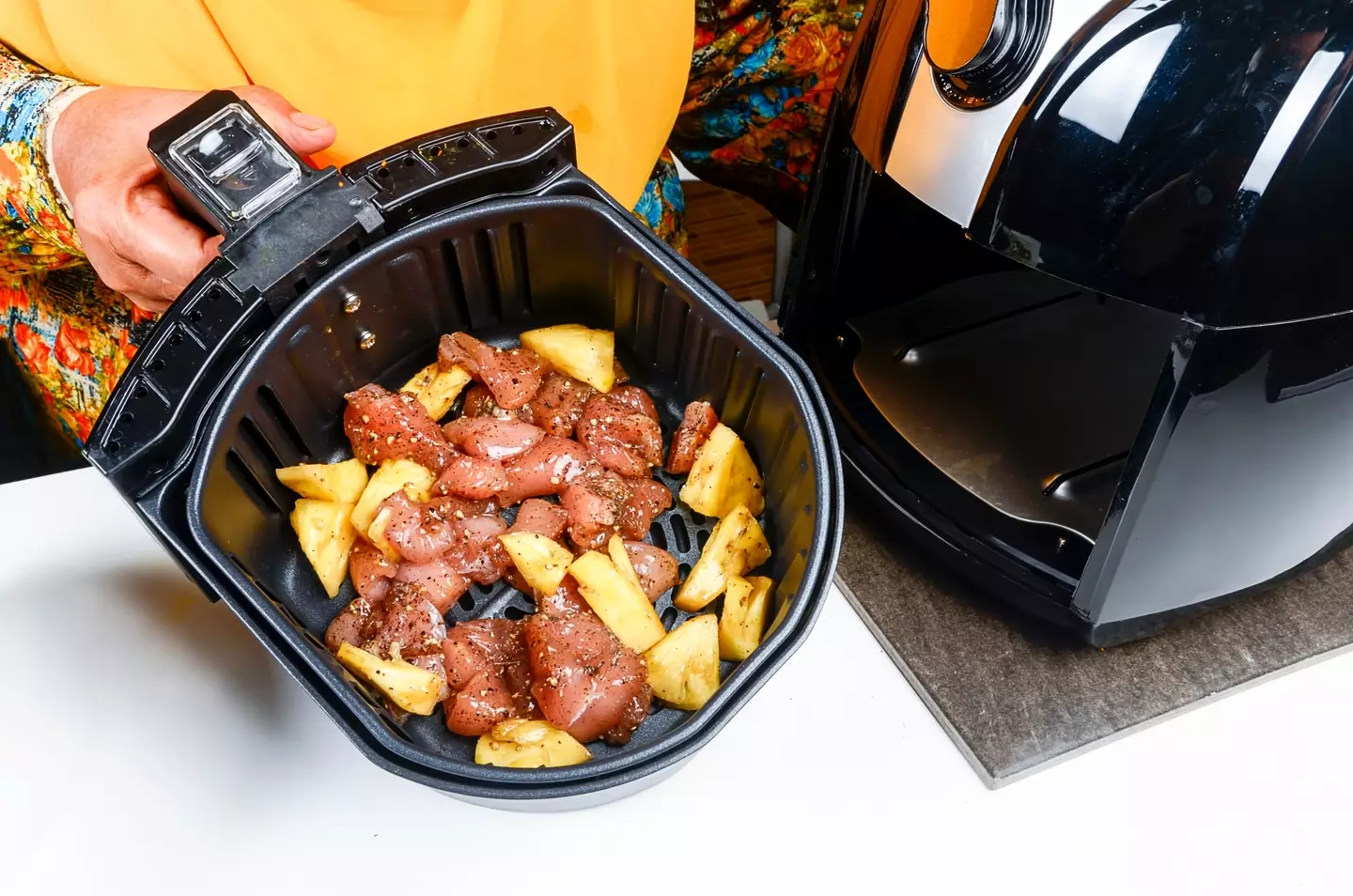
Cooking pigs in blankets in an air fryer this Christmas might be a problem (Getty Stock Images)
As Brenda mentioned, the fat content will also make your air fryer smoke the place up like Winston Churchill. Not only that, but if the fat splatters out of the pot, you could accidentally burn yourself.
When it comes to pure bacon strips, there’s also the issue of trying to scrape them out of your air fryer once they’re cooked. If you don’t use a baking sheet, they can quite easily stick to the bottom, which isn’t ideal.
Brenda added: “A bacon strip is a small and delicate food, and it can be difficult to flip or remove from the air fryer basket without breaking it. The air fryer basket may not be large enough to accommodate a large quantity of bacon.
“This can make it difficult to cook a lot of bacon at once, which can be inconvenient if you are cooking for a group.”Featured Image Credit: Getty Stock Images
Topics: Christmas, Food And Drink, BBC, Health

Anish Vij
Advert
Advert
Advert

Published 15:35 1 Dec 2024 GMT
Doctor has shared worrying concern about people who binge-drink before Christmas Day
Over 60 percent of drinkers in the UK consume more alcohol than they normally do during the Christmas period

It’s pretty well accepted that, as a nation, we drink a little more than normal over the festive season.
Over Christmas, you’re meeting up with friends and family, heading on your work dos, and probably indulging a little more, attempting to adjust to the miserable weather.
So, it comes as no surprise that over 60 percent of drinkers in the UK consume more alcohol than they normally do during the Christmas period, according to Drinkaware.
The alcohol charity said their poll showed that ‘drinkers who work are also more likely to feel pressured to drink at their festive work party (33 percent) than other times of year’.
Snoop Dogg on weed vs alcohol
Credit: Netflix
0 seconds of 34 secondsVolume 90%
What happens when you binge drink
Dr Patrick Kennedy, consultant hepatologist and gastroenterologist at King Edward VII’s hospital, told Huffington Post: “There is no question that excess alcohol consumption and any increased drinking pattern – typical of the pre-Christmas spike – has a major impact on our health.
“Too often, we also overlook the negative impact alcohol has on our general health affecting the brain, the heart, our skin, in addition to its association with many cancers.
“My concern is around liver damage and potential for repeated spikes to cause liver injury, which ultimately can lead to chronic liver disease.”
.webp)
Binge drinking over Christmas is probably not good for you (Getty Stock Images)
Why doctors worry about binge-drinking this time of the year
Kennedy said: “Of course health professionals worry about this time of year as it is synonymous with excess.
“Increased drinking patterns above the ‘normal’ background level of alcohol consumption can be enough to precipitate liver related problems or symptoms.”
The doctor warns that thinking, ‘It’s only one month of the year,’ is similar ‘to the just one more drink’ culture.
“The effects of alcohol are cumulative, the more you drink, the greater the risk,” he said.
.webp)
Over 60 percent of drinkers in the UK consume more alcohol than they normally do during the Christmas period (Getty Stock Images)
How much should you drink?
The NHS advises people to not regularly drink more than 14 units a week.
One unit of alcohol is 8g or 10ml of pure alcohol, which is about half a pint of lower to normal-strength lager/beer/cider (ABV 3.6 percent), a single small shot measure (25ml) of spirits (25ml, ABV 40 percent), or a small glass (125ml, ABV 12 percent) of wine containing about 1.5 units of alcohol.
Providing a more simple method, Dr Kennedy said: “The most simple intervention that I recommend is consecutive alcohol-free days. I usually recommend 3-4 consecutive alcohol-free days per week.”
Please drink responsibly. If you want to discuss any issues relating to alcohol in confidence, contact Drinkline on 0300 123 1110, 9am–8pm weekdays and 11am–4pm weekends for advice and support.